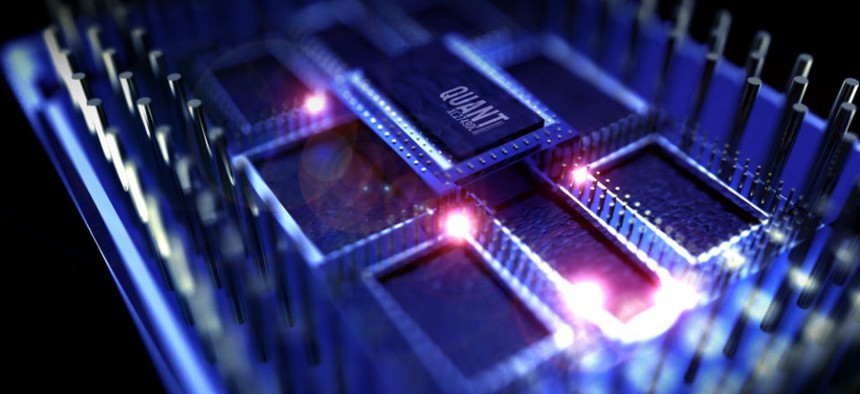Quantum Speed Not So Fast After All

A 3D rendered simulation of a quantum processor computer. welcomia/Shutterstock.com
New research a blow for quantum computing.
Theoretically, quantum computing has near-limitless potential to compute information through exploiting the fundamental laws of physics.
Despite perceived advancements in the new field, including the development of the first commercial quantum computer by a Canadian company called D-Wave Systems, the current reality is that quantum computing is no faster than the computing going on in the guts of average Macs or PCs.
That’s the argument made in new research released June 19, in which researchers pitted a D-Wave Two against traditional computers running fairly matched optimization algorithms.
First reported by Wired, the researchers found “no evidence of quantum speedup when the entire data set is considered,” and “inconclusive results” occurred in other data subsets. The researchers did not rule out the possibility of a quantum speedup -- the mark up in speed that quantum mechanics theoretically allows for -- for other kinds of problems outside the optimization arena.
The team found instances where the D-Wave Two solved problems up to five times faster than normal computers. However, in some problems they computed results up to 100 times slower than their traditional counterparts. D-Wave Systems disputed the results, suggesting researchers need to pick more challenging problems.
The results are likely to add fuel to the debate over whether today’s quantum computers actually make use of quantum phenomena, or whether they can do things a classical computer couldn’t do. NASA and Google, who co-operate the world’s largest nonclassified quantum computer, have yet to publish results of research they’ve been doing. If those results show advantages in quantum computing, it could prompt interest from businesses with inherently difficult optimization problems
(Image via welcomia/Shutterstock.com)






